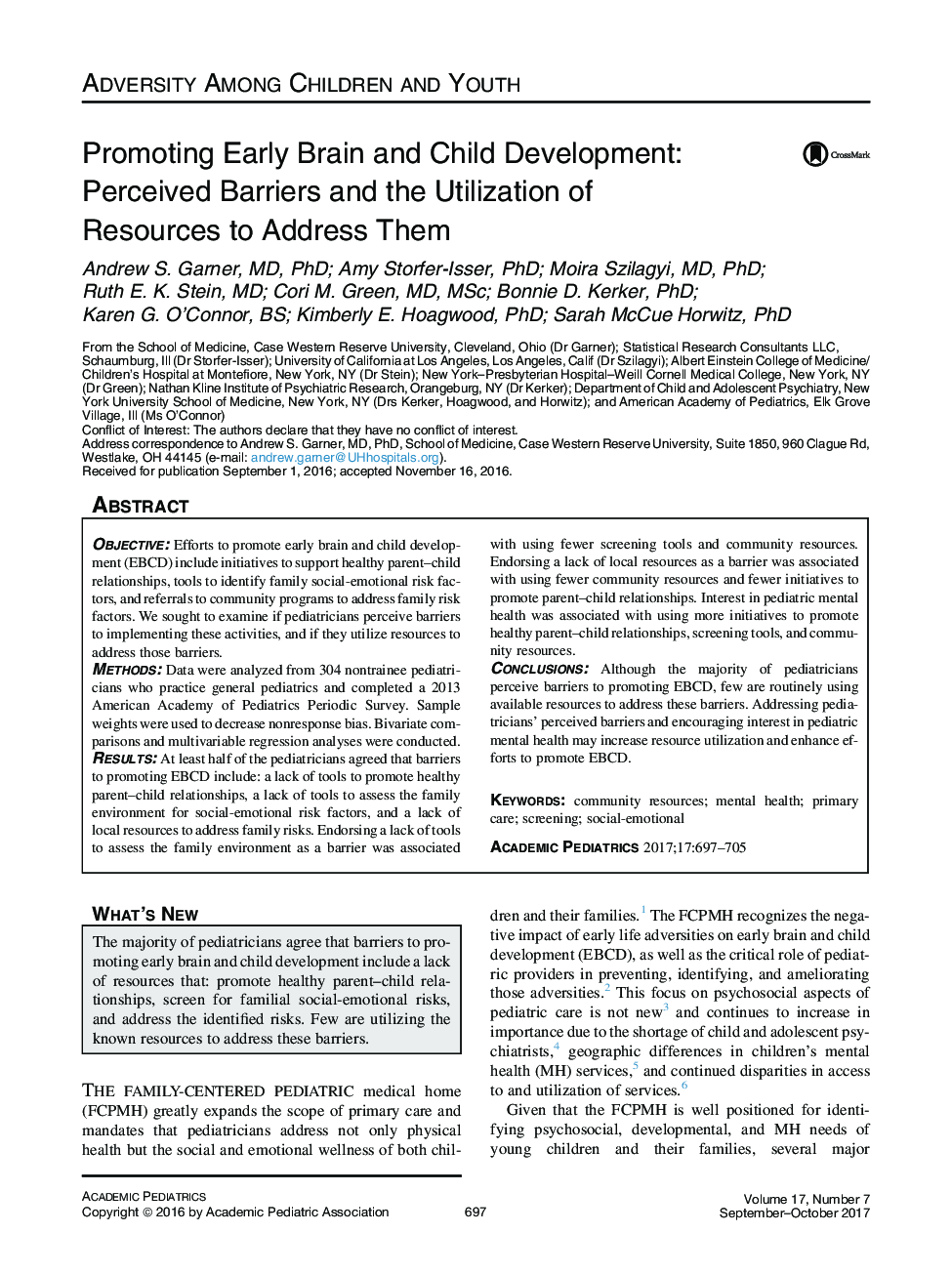| Article ID | Journal | Published Year | Pages | File Type |
|---|---|---|---|---|
| 5716762 | Academic Pediatrics | 2017 | 9 Pages |
ObjectiveEfforts to promote early brain and child development (EBCD) include initiatives to support healthy parent-child relationships, tools to identify family social-emotional risk factors, and referrals to community programs to address family risk factors. We sought to examine if pediatricians perceive barriers to implementing these activities, and if they utilize resources to address those barriers.MethodsData were analyzed from 304 nontrainee pediatricians who practice general pediatrics and completed a 2013 American Academy of Pediatrics Periodic Survey. Sample weights were used to decrease nonresponse bias. Bivariate comparisons and multivariable regression analyses were conducted.ResultsAt least half of the pediatricians agreed that barriers to promoting EBCD include: a lack of tools to promote healthy parent-child relationships, a lack of tools to assess the family environment for social-emotional risk factors, and a lack of local resources to address family risks. Endorsing a lack of tools to assess the family environment as a barrier was associated with using fewer screening tools and community resources. Endorsing a lack of local resources as a barrier was associated with using fewer community resources and fewer initiatives to promote parent-child relationships. Interest in pediatric mental health was associated with using more initiatives to promote healthy parent-child relationships, screening tools, and community resources.ConclusionsAlthough the majority of pediatricians perceive barriers to promoting EBCD, few are routinely using available resources to address these barriers. Addressing pediatricians' perceived barriers and encouraging interest in pediatric mental health may increase resource utilization and enhance efforts to promote EBCD.
